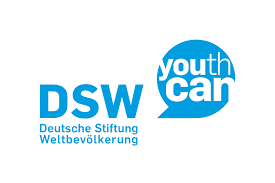Consultancy- Training on Health and Nutrition Related Issues for Children with Disability, CESVI
PROJECT TITLE:
INCREASING THE CAPACITY OF HUMAN RIGHTS DEFENDERS FOR THE PROTECTION AND PROMOTION OF CHILDREN BEST INTEREST IN THE KENYAN JUVENILE JUSTICE SYSTEM IN THE 3 COUNTIES OF NAIROBI, KISUMU AND KERICHO
PROJECT NUMBER- EIDHR/2019/162330/54
Project Background
The overall goal of the project is to strengthen and support protection and promotion of the best interest and equal rights of children in the Juvenile Justice system, targeting both children in contact and in conflict with the law.
The long-term change envisions a strengthened Alternative Care system and awareness grounded in the best interests and rights of children separated from their families, resulting in courses of action in conformity with the principles of non-discrimination, protection, survival and participation.
The strategy was to empower local Human Rights Defenders (HRDs) and Human Right Defender Organizations (HRD) working at grassroots level within the Juvenile Justice process (including prevention level, early management procedures and pre-trial management levels, trial, post-trial and family reintegration level). The strategy is based on three pillars: i. Capacity building and improved coordination of Juvenile Justice Agencies; ii. Service provisions through a comprehensive approach to rehabilitation, prevention, protection and promotion of children’s rights with a specific focus on children with special needs; iii. Advocacy and public dialogue to support Human Rights Defenders and Human Rights Defender organizations on promoting the rights of children deprived of their liberty with a specific focus on diversion and Alternative Care mechanisms.
Malnutrition is a major hindrance to learning and development of children with disability. Juvenile Justice system mostly ignores the special nutrition needs of the children within their care, hence hindering these children from accessing their right to good health. This training shall aim to empower the staff from the children remand homes with knowledge and skills on handling children with disability with the Juvenile Justice System (JJS).
Project Goal
The action intends to strengthen and support overall protection and promotion of the best interests and equal rights of children in the JJS with a special focus on children with special needs.
Project Outcome
Human Rights Defenders (HRDs) and HRD organizations at grassroots level have increase capacities to effectively improve Alternative Care Services for children in contact and in conflict with the law, with a special focus on children with special needs in the JJS in three counties.
Project Outputs
- HRDs, HRD Organizations and Government Institutions at grassroots level have improved skills and resources to strengthen the JJS protection mechanisms and institutions for provision of AC, legal, psychosocial, education, rehabilitation, reintegration to children with special needs or in need of care and protection.
- HRDs and HRD organizations have improved skills and resources to create community awareness and sensitization and to build capacity of the community, families and children beneficiaries to actively participate in AC provision.
- Best practices and guidelines on AC are embedded in the Kenyan Children Bill (2017), through advocacy and lobbying by HRDs and HRD organizations at grassroots level.
Targeted Group
Staff from the children Remand Homes across the 3 counties: Nairobi, Kericho & Kisumu.
Project Assignment
The assignment will focus on empowering 30 remand home staff on basic health, hygiene and nutritional issues related to children with special needs within the JJS.
The consultant will be expected to conduct 5 days training to each children remand homes of Nairobi, Kericho and Kisumu.
Key areas of focus will include:
- Remand health, hygiene and sanitation: provide knowledge on importance of health and hygiene for children within the remand home, proper waste management and sanitation techniques, access to clean and safe water, sensitization of Covid 19 guidelines and highlighting on the possible epidemics as result of poor health, hygiene and sanitation within the remand homes.
- Behaviour modification: definition of behaviour modification, existing physical dimensions of behaviour modification, importance of behaviour modification and strategies and techniques that are commonly used for behaviour modification for children living within institutions.
- Therapeutic exercises: provide staff with knowledge on the aim and importance of therapeutic exercises for children with special needs, classification of the existing therapeutic exercises, types of the therapeutic exercises and other aspects of therapeutic exercises that is relevant for children living in the remand home with a focus on children with special needs.
- Communication handling: Equip the staff with tailored communication handling techniques for children with special needs, principles and etiquette of handling children with special needs, recommendations and tips on how to improve communication and interaction skills for children with special needs.
- Positioning Activities for Daily Living: Outline on basic and instrumental activities for daily living for children with special needs.
- Nutrition and diet intervention: Outline on the aspects of nutrition that are relevant for children living in the remand homes with a focus on children with special needs e.g. Balanced diet and diet descriptions , good eating habits, Eating behaviours for children with special needs, menu modification etc.
Objectives of the Assignment
To equip the remand home staff across the 3 counties with knowledge and skills on health and nutrition related issues for children with disabilities.
Expected Outcomes
- At least 30 staff from the children remand homes are trained on health and nutrition related issues for children with disability.
- Enhanced understanding of the remand home staff on health and nutrition related issues for children with disability within the JJS.
- Challenges faced by the remand home staff when handling cases of children with disability in the JJS is well documented.
- An action plan is developed and adopted by the remand home staff .
Consultancy Tasks & Deliverables
- Develop a detailed concept note on how to undertake the assignment with detailed timeline of activities for the workshop.
- Develop training curriculum guide that shall be used for the training. Ensure that the guide clearly outline the topics to be covered, instructional methods to be used and learning activities.
- Set up course materials/meeting platform to be used during the workshop and post materials; maintaining the platform over time to ensure its accessible and materials are kept up to date.
- Conduct a 5 days training for the staff within the remand homes across the three counties through coordination of the workshop, moderation of the sessions and taking notes on key discussion points.
- Assessment & Evaluation: Assess the knowledge of the participants at the beginning and end of the workshop training.
- Develop, draft and submit a detailed report for the workshop training.
Consultancy Duration
One Month,
1st March 2022 to 30th March 2022
Consultancy Location
Physical: Remand Homes in Kericho, Kisumu and Nairobi Counties. The consultant will be fully responsible for arranging his /her logistics of travel and accommodation to fulfil the tasks of the consultancy.
The consultant shall be accompanied by CESVI staff representative during the workshops.
Quality & Ethical Standards
The consultant selected will be governed by and subject to CESVI’s General Terms and Conditions for individual contracts.
The consultant shall take all reasonable steps to ensure that the trainings conducted are of quality with all the expected topics covered.
Cesvi shall ensure all the participants have been mobilized and invited for the workshop.
Cesvi shall provide all the necessary documents and information for the consultant to have a clear understanding of what is expected of them.
Cesvi has zero-tolerance to sexual exploitation and abuse, sexual harassment, abuse of authority and also adheres to strict child safeguarding principles.
All selected consultants will be expected to adhere to CESVI’s standards and principles and will therefore undergo rigorous reference and background checks and will have to sign a statement signifying this agreement to CESVI (Prevention of Sexual exploitation and Abuse) PSEA policy.
Reporting
The consultant, during the course of this assignment, will report to the EIDHR Project Coordinator.
Experience and Qualification
- The eligible consultant must have a minimum of Bachelors of Degree in Public Health, Nutrition or Social Sciences or related discipline with experience on special needs aspects.
- The Consultant should have experience of working with local partners in facilitating trainings on nutrition, health and hygiene especially for children with special needs.
- The consultant should be conversant with NGO’s operation with focus on children, particularly those with special needs. Additional knowledge and experience on networks will be of great importance.
- The person should have worked with developmental organizations before for at least 2 years.
- Experience in developing content and facilitating adult learning programmes.
- The consultant should provide evidence of previous works in similar assignments.
- Excellent written communication skills.
- The consultant must show the ability to prioritize and manage time efficiently, including handling multiple tasks effectively and coordinate with the assigned supervisor.
- Knowledge and experience of E.U regulations is an added advantage .
Proposals should also include:
- Cover Letter
- CV including reference details of previous consultancy
- Sample of previous work in similar consultancy work
- Technical proposal (please include a work plan for the workshop, duration for the sessions, methodologies to be used).
- Financial proposal (please highlight on the rates to be charged for the tasks outlined).








